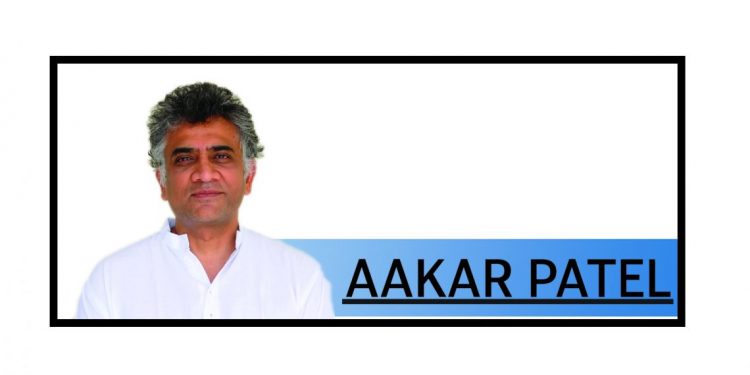On its website, the BJP says, “The philosophy of Integral Humanism looks at the individual not merely as a material object but one who has a spiritual dimension. It talks of integral approach to economic development that has individual at its core that is linked to the family, the society and the nation.”
What do these words mean? What does a government and political party have to do with the spiritual dimension and even if this is possible how can this spiritual dimension be tapped into with the usual levers available to the state? How are these words reflected in the BJP’s manifesto or in the BJP’s budgets through actionable policies? If they are, in what way are they missing from the policies of other parties?
Let us have a look at the manifestoes of the BJP/Jana Sangh, which were published by the party a few years ago. It may surprise readers to know that there is little or no continuity in the way that the party thinks and on critical issues it has reversed its position with no explanation for why.
In its 1954 manifesto, and again in 1971, the Jana Sangh resolved to limit the maximum income of all Indian citizens to Rs2,000 per month and the minimum to Rs100, maintaining a 20:1 ratio. It would continue working on reducing this gap till it reached 10:1 which was the ideal gap and all Indians could only have incomes inside this range based on their position. Additional income earned by individuals over this limit would be appropriated by the State for development needs “through contribution, taxation, compulsory loans and investment.” The party would also limit the size of residential houses in cities and not allow plots of more than 1000 square yards (someone should tell the Ambanis and Adanis this).
In 1954 it said that “tractors will be used only to break virgin soil. Their use for normal ploughing purposes will be discouraged.” This was of course because it was trying to protect the bull and the ox from slaughter. In 1951, prohibition of cow slaughter was explained as something needed “to make the cow an economic unit of agricultural life.” In 1954, the text was more religious and called cow protection a “pious duty.”
Though it says it is today a champion of a uniform civil code, the party consistently opposed divorce and nuclear families. Its manifestoes (1957 and 1958) say that “joint family and indissoluble marriage have been the basis of Hindu society. Laws that alter this basis will ultimately lead to the disintegration of society.
Jana Sangh will therefore repeal the Hindu Marriage and Hindu Succession Acts.” The Jana Sangh’s 1973 analysis of caste violence “reveals that in most cases the conflict is not between Harijans and caste Hindus as such, but it is between Harijans and a set of people who are in power and who also happen to belong to upper castes.” Meaning that caste itself was not the source of the conflict.
Culturally, the party stood firmly against alcohol and sought nationwide prohibition. And it wanted English to be replaced in all spheres by local languages and especially, Hindi.
Most interestingly, the Jana Sangh said it would also repeal preventive detention laws like UAPA which it said were absolutely in contradiction to individual liberty. This promise was made repeatedly in the 1950s. However by 1967 it began to qualify the demand and said that “care will be taken to ensure that fifth columnists and disruptionist elements are not allowed to exploit fundamental rights.” In time, the Sangh and the BJP became the most enthusiastic champions of preventive detention.
In 1954, the party said it would repeal the first amendment to the Constitution that curbed freedom of speech by imposing “reasonable restrictions.” This amendment essentially took away freedom of expression because the list of what is seen as a reasonable restriction was far too wide and broad. The Jana Sangh sensed that it was not something that could be allowed to go unchallenged. However, after 1954, this demand that the first amendment be repealed and freedom of speech, association and assembly be restored to Indians disappeared from the Jana Sangh manifestos without explanation.
Integral Humanism is according to the BJP constitution, the party’s “basic philosophy.” It opposes the idea of linguistic states by saying (in Lecture 3, April 24, 1965): “the first para of the Constitution “India that is Bharat will be a Federation of States,” i.e. Bihar Mata, Banga Mata, Punjab Mata, Kannada Mata, Tamil Mata, are all put together to make Bharatmata. This is ridiculous. We have thought of the provinces as limbs of Bharatmata and not as individual mothers. Therefore, our Constitution should be Unitary instead of Federal.” When was the last time we heard the BJP push for this?
The Jana Sangh was unable to express its majoritarianism as clearly and in as full-throated a fashion as the BJP was later able to. This was because it lacked a specific programme on the back of which to mobilise anti-Muslim sentiment, such as the campaign against the Babri Masjid. Even though the idols were smuggled into the mosque a few months before the Jana Sangh was formed, there was no reference to Ayodhya or a Ram temple there in any of the Jana Sangh manifestos from 1951 to 1980.
Once power was secured, all the things that the Jana Sangh claimed it stood for over the decades, including its manifestoes and its ‘basic philosophy’, have been cast aside.
By Aakar Patel






































